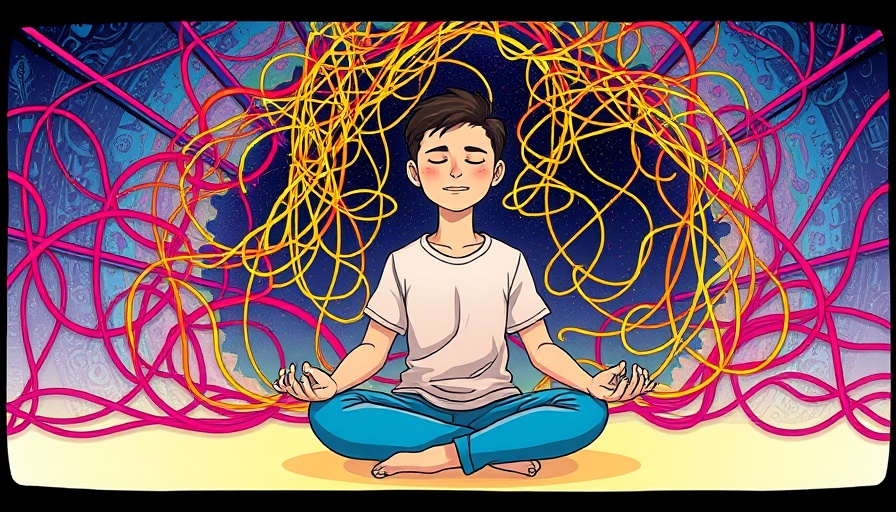
Understanding Mindfulness and Habit Formation
Have you ever noticed how some habits seem hardwired into your daily routine, almost without thought? This process occurs in the brain through the principle that "neurons that fire together, wire together." As we repeat actions or responses, such as reaching for snacks or checking our phones, we create neural pathways that encourage that behavior.
The Science Behind Cravings and Bad Habits
Habits form as a natural survival mechanism, often developed through reward-based learning systems. Much like how ancient humans learned to associate certain foods with survival, modern individuals connect pleasure with various behaviors, sometimes leading to unhealthy habits. According to acclaimed neuroscientist Eric Kandel, understanding these cravings offers a glimpse into how behaviors can become ingrained over time.
Mindfulness: A Tool for Change
Mindfulness can interrupt this cycle by helping individuals become aware of their thoughts and cravings instead of reacting impulsively. Judson Brewer, in his book The Craving Mind, emphasizes that when we bring awareness to our habitual actions, we create space to respond differently. Practicing mindfulness allows us to observe our cravings without judgment, decreasing their power over us.
Practical Tips for Incorporating Mindfulness into Your Daily Routine
Integrating mindfulness into your daily life doesn’t have to be overwhelming. Here are some practical tips to get you started:
- Start Small: Choose a habit you'd like to break and dedicate a few minutes each day to practice mindfulness. Focus on your breath or the sensations in your body while contemplating this habit.
- Mindful Yoga: Engaging in mindful yoga practices can enhance your awareness and deepen your connection with your body. This combination fosters a greater understanding of how your body responds to cravings.
- Journaling: Reflect on your cravings by keeping a journal. Write down what triggers these cravings and how you can respond mindfully instead of automatically reaching for that cookie.
Creating New Pathways
As you begin to foster mindfulness, you'll find that it not only aids in breaking bad habits but also helps in forming new, healthier ones. By consciously choosing to periodize these habits, you can reinforce positive behaviors, significantly decreasing the likelihood of falling back into old patterns.
The Bigger Picture: How Mindfulness Transforms Lives
Mindfulness's potential goes beyond simply breaking bad habits; it connects to overall well-being. As we navigate life’s pressures, maintaining a mindful practice cultivates resilience against stress and promotes healthier choices. Studies have shown that those engaged in mindfulness practices report less anxiety, improved emotional regulation, and greater perceptions of well-being.
Conclusion: Embrace Mindfulness for a Healthier Future
In a world dominated by distractions, choosing to practice mindfulness lays the groundwork for a healthier relationship with ourselves and our choices. By being present and aware, we not only break the chains of bad habits but pave new paths toward positive outcomes in both our minds and bodies.
 Add Row
Add Row  Add
Add 




Write A Comment